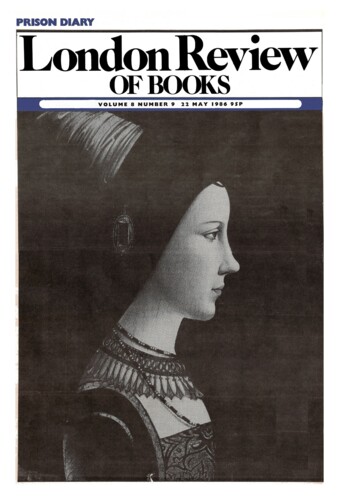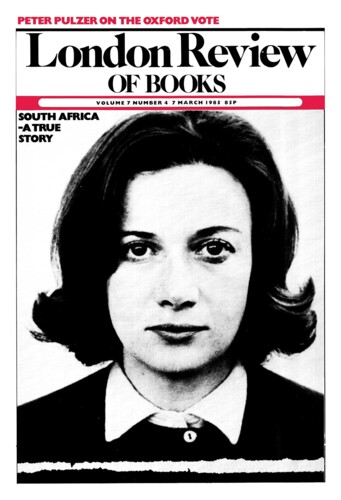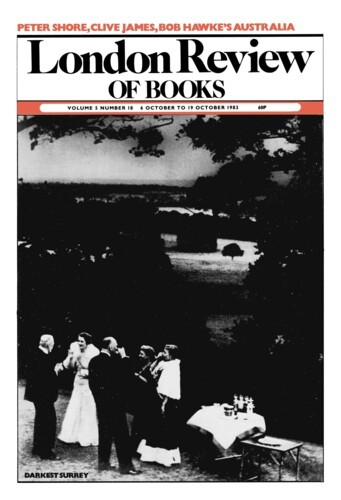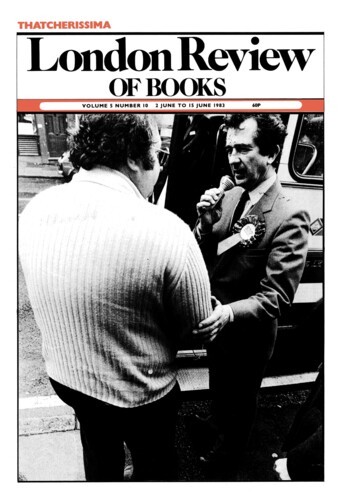Homage to Spain
Douglas Johnson, 22 May 1986
Revolutions have frequently been analysed and categorised. Wars, and the art of war, have been carefully studied. But the category of civil wars has been neglected. Perhaps this is because they are difficult to recognise or to define. Should we continue to write about guerres franco-françaises, arising from the Paris Commune, the Resistance movements, or the Organisation de l’Armée Secrète formed by Algerian settlers, or should we think of them as civil wars? Often there is a reluctance to admit to the existence of civil wars as anything other than an accident or temporary aberration: many English historians have liked to play down the importance of the English Civil War and tell anecdotes about the way in which the two sides paused at the moment of battle so that a hunting party could pass between them, or, more philosophically, to ask whether the Civil War had any effect on English history at all. Civil wars can be dismissed as the terrorist activities of small groups of individuals whose aggressive intolerance or violent insistence upon their own identities causes them to reject, for as long as they can, the society that envelops them. Since the antagonists in civil wars invariably appeal to foreigners to come and assist them, the story of civil wars becomes embroiled in questions of invasion and of international relations, thus creating the sort of complexities which make historians impatient.





